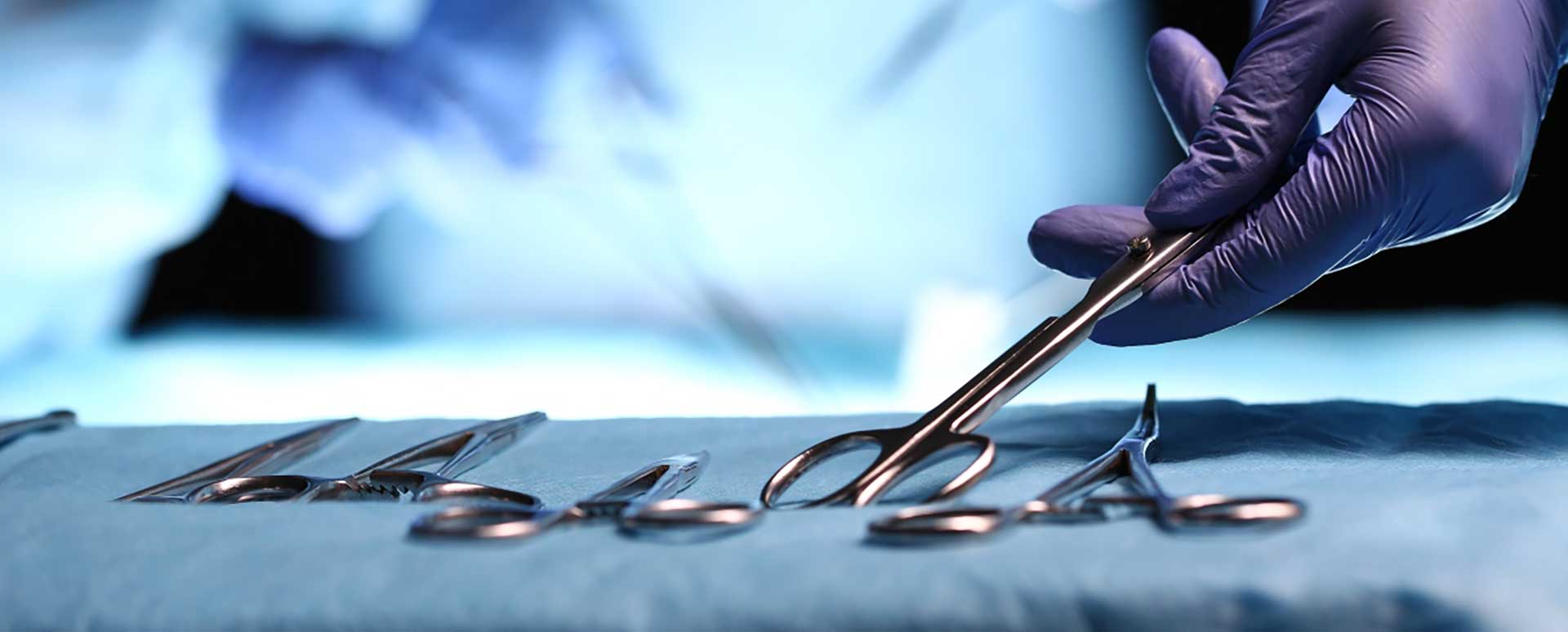The biological evaluation of any medical device shall be part of a structured biological evaluation within a risk management process in accordance with ISO 14971. Our biological safety specialists will consider the physical and chemical characteristics of the various candidate materials, any history of clinical use and any existing toxicological and other biological safety data on product and component materials. Our biological evaluations are planned, carried out, and documented by knowledgeable and experienced professionals. Thanks to decades of experience in biological safety of medical devices, this service will guide you through the appropriate biocompatibility strategy tailored on your device.

Preclinical Support
Contact us
The regulatory framework of medical devices is constantly growing with frequent changes and updates. In this never-ending story, Eurofins Regulatory and Consultancy Services provides solutions to preclinical regulatory needs to reach the compliance of Medical Devices.
With a dedicated team of preclinical experts in safety assessment of medical devices, Eurofins Regulatory and Consultancy Services can drive Manufacturers through the development of the Medical Device and advice on appropriate strategies to achieve the preclinical regulatory compliance.
All the Medical Device Regulations around the world require Manufacturers to build up a set of documentation to demonstrate that Medical devices are safe and effective. In fact, they shall be manufactured in a manner not to compromise the clinical condition or the safety of patients, or the safety and health of users. In this perspective, all Manufacturers need to build up an appropriate set of data before their Medical device are being placed on the market. These data may include experimental data, assessments or rationales. In any case, they should be in compliance with the latest State of the Art.
A general approach for conducting a toxicological risk assessment (TRA) follows the approach depicted in ISO 10993-17. This step is crucial to understand the output from chemical characterizations and whether further analyses should be carried out. We have a dedicated team of toxicologists (including European Registered Toxicologist - ERT) that analyze raw materials, Extractables and Leachables data with the aim to: Identify Hazards, verify AET used in chemical characterizations, provide Exposure Assessments and perform Risk Characterization and Margin of safety (MOS) calculation.
In the case of devices that are composed of substances or combinations of substances that are intended to be introduced into the human body and that are absorbed by or locally dispersed in the human body, Annex II of the MDR poses additional requirements. In fact, detailed information regarding studies in relation to absorption, distribution, metabolism and excretion shall be provided. Our experts can support manufacturer to understand whether the device has a potential to be absorbed through a systematic literature search, concluding if additional analyses are required.
Medical device design practices require that a risk assessment to be revisited when a design change occurs. If the design is modified, changes made on the medical device could alter the biological performance of the medical device. This service, carried out by our experts biological safety specialists, addresses the biological risks associated with a change providing a dedicated and tailored biological strategy.
The Medical Device Regulation imposed a threshold of 0.1% w/w on the presence of CMR or ED substances for those parts of or those materials used in Devices, unless adequately justified. This Toxicological assessment of CMR and ED properties provides a systematic literature search with the aim to determine whether the materials used in your device may possess CMR or ED properties. Literature available data and in silico data on the constituents/raw material are then reviewed to estimate the actual risks of these substances to support the justification of their presence in the medical device.
During the execution of tests and assessments, unexpected data represent a challenge for the organization, and it should be decided on how to proceed with the development of the medical device. Also, during the revision of the documentation made by regulatory bodies, non-conformities or observations could represent an additional obstacle to drive the device into the market. Our experts provides solutions on those challenges through a suited strategy based on the device and on the specific feedbacks from the regulators.
When an ISO standard or a guideline is updated, the changes can involve the whole body of the document, its structure, its technical specifications or its single parts. These changes can have different impact on its application. To understand the impact of the changes of a particular ISO on the organization, a Gap Analysis is deemed necessary. In fact, a ISO Gap Analysis is the process that systematically detects the differences between the actual version of an International Standard and its withdrawn version. This service aims is to verify if the results of the tests performed on a device can be considered still valid in accordance with the actual requirements.
What is packaging validation?
Medical device packaging validation is a comprehensive procedure that evaluates the effectiveness and quality of packaging equipment, materials and designs used for medical devices, as well as processing variables that affect the ability of a packaged device to meet its acceptance requirements. It involves a series of tests and assessments to ensure that the packaging meets regulatory requirements, industry standards, and manufacturer specifications. The ISO 11607 series of standards defines the validation requirements applicable to packaging systems.
For more information and any needs you can visit this site:
https://www.eurofins.it/consultancy-services/packaging-validation/
To get more information you can click the button below, you will be contacted by our experts as soon as possible.
Contact Us